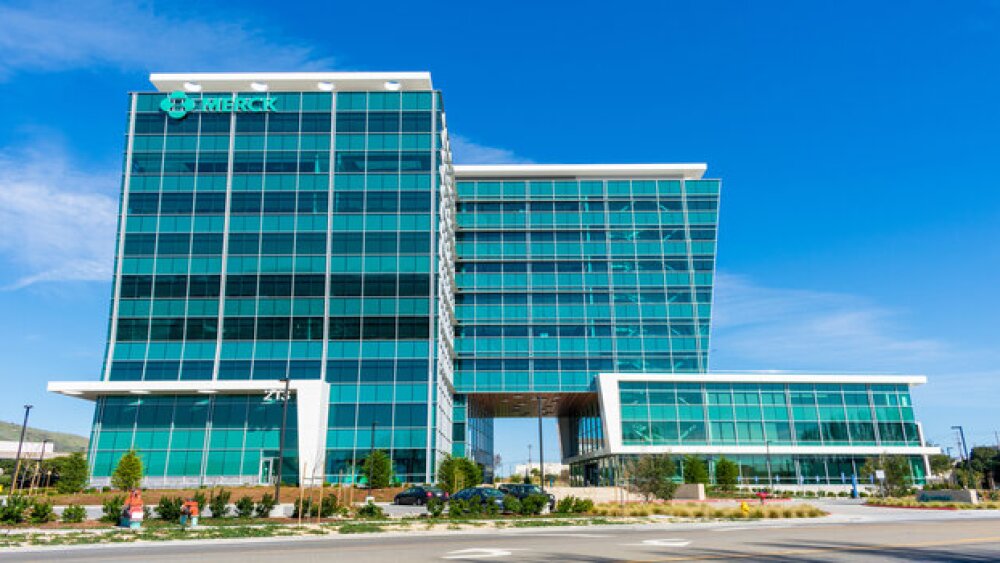The company’s blockbuster cancer asset Keytruda brought in more than $6.3 billion in the third quarter, a 17% increase from the same period last year, while bolstering its antibody-drug conjugate portfolio.
Pictured: Merck Research Laboratories headquarters in California/iStock, Michael Vi
Merck on Thursday reported its third-quarter financial results, highlighting the strong and sustained growth of its blockbuster cancer asset Keytruda (pembrolizumab) and the company’s ongoing push to deepen its antibody-drug conjugate portfolio.
Keytruda brought in more than $6.3 billion in third-quarter sales, a 17% increase from the same period last year. During the first nine months of 2022, the PD-1 blocker earned over $18.4 billion, according to a separate financial highlights document from Merck.
This increase in Keytruda’s sales was driven largely by the continued strong demand in metastatic care, bolstered by a greater global uptake in earlier-stage indications such as triple-negative breast cancer and renal cell carcinoma, the company noted in its report.
Merck has been working to push Keytruda into earlier disease stages and in recent months has released several readouts establishing evidence of its efficacy in these settings. At the recently concluded European Society for Medical Oncology (ESMO) Congress 2023, Merck presented data from the Phase III KEYNOTE-671 study in stage II, IIIA or IIIB non-small cell lung cancer.
In the study, Keytruda given before and after surgical resection led to a significant improvement in overall survival compared with placebo. The findings of KEYNOTE-671 served as the FDA’s basis for approving Keytruda’s label expansion into this indication last week.
Also at ESMO 2023, Merck unveiled results from the pivotal KEYNOTE-A18 trial in newly diagnosed locally advanced cervical cancer. In these patients, Keytruda plus concurrent chemoradiotherapy reduced the risk of disease progression or death by 30% versus concurrent chemoradiotherapy alone. The FDA has granted Keytruda priority review in this indication and is set to release its verdict by Jan. 20, 2024.
Besides Keytruda, Merck’s other strong revenue drivers included its HPV vaccines Gardasil and Gardasil 9, which brough in $2.59 billion, and diabetes therapies Januvia (sitagliptin) and Janumet (sitagliptin and metformin HCl), which captured $835 million. Merck made nearly $16 billion in total sales in the third quarter, up 7% from last year’s figures.
In its third-quarter report, Merck highlighted its recent $4 billion deal with antibody-drug conjugate (ADC) leader Daiichi Sankyo. Last week, the company put around $22 billion on the line—including an upfront payment of $4 billion—for three of Daiichi Sankyo’s DXd ADC candidates.
“We’re particularly excited by our recently announced clinical and commercial collaboration with Daiichi Sankyo for three potentially first-in-class antibody-drug conjugates,” Merck CEO Rob Davis said during an investor call on Thursday, adding that the deal contributes to the “growing diversity” in Merck’s portfolio across new therapeutic areas and modalities.
With these R&D investments, along with the continued strong performance of its pharmaceutical assets, Merck has raised its full-year sales guidance. The company now expects to make $59.7 billion to $60.2 billion for 2023, up from the previously announced $58.6 billion to $59.6 billion range.
Tristan Manalac is an independent science writer based in Metro Manila, Philippines. He can be reached at tristan@tristanmanalac.com or tristan.manalac@biospace.com.






